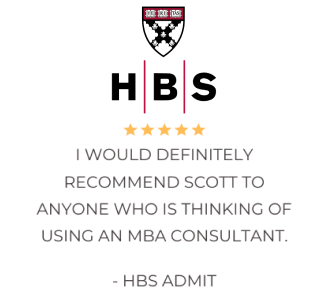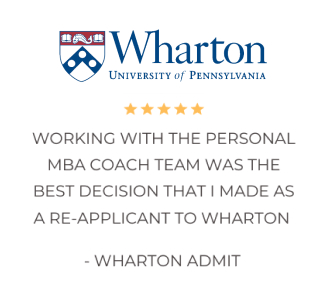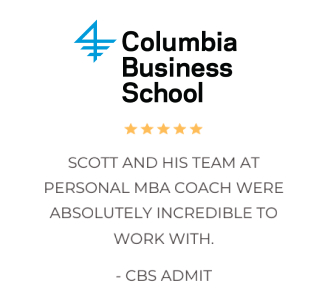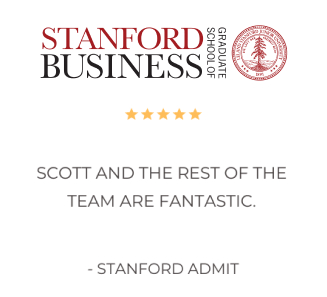Each year, Association of International Graduate Admissions Consultants (AIGAC) member consultants meet with MBA Admissions Directors from the top business schools, globally, to discuss evolving MBA admissions trends, challenges, and opportunities.
During each annual event we visit multiple top campuses to learn more about their latest offerings, tour campuses, hear from students and faculty and even take a class. This year, we visited and toured Stanford GSB, Berkeley Haas, and UCLA Anderson. Last year, we visited INSEAD, HEC Paris and IESE, and the previous year we toured CBS and Yale SOM. Prior hosts have included HBS, MIT Sloan, and Wharton. By visiting a new region each year, our team is positioned to provide firsthand perspective on all top MBA programs, what sets them apart and what they are looking for from applicants.
While these visits are always enlightening, the highlight of the AIGAC Conference is the multi-day gathering with Admissions Directors from nearly all top MBA Programs. This year, Personal MBA Coach and our fellow AIGAC consultants (keep in mind that many consultants are NOT members of AIGAC) had the privilege of meeting with admissions directors from over 30 leading programs during the conference. The conversations were candid, insightful, and incredibly valuable for prospective applicants.

We left the 2025 AIGAC Conference even more convinced that NOW is the ideal time to apply to business school. Find out why here!
If you have been considering an MBA, this is your moment. Here is what we learned—and what every MBA hopeful should keep in mind:
1. Diversity of Thought and Perspective Remains a Priority
Admissions directors across the board emphasized that business schools continue to seek candidates who bring unique perspectives to the classroom. Even as external forces, such as government regulations and changing legal frameworks, influence how schools structure their application processes, the underlying commitment to bringing together individuals who think differently has not changed.
This goes beyond professional background or geography — it is about mindset, lived experiences, and how you think. Business schools are building classes that reflect a wide array of voices and viewpoints, as they believe this diversity is essential for preparing students to lead in an increasingly complex world.
What This Means for You: Do not just showcase accomplishments; highlight how your experiences have shaped your worldview and how you will contribute to classroom discussions in a meaningful way.
2. Strong Support for International Students
Despite uncertainties in global mobility and shifting visa regulations, business schools are unwavering in their support for international students. Admissions officers made it clear: International applicants are welcomed and highly valued. Schools are doing everything in their power to support international students, and most have dedicated staff on hand to help with visa processing.
What This Means for You: If you are applying from outside the U.S., do not hesitate. Schools are investing in resources, career support, and community integration to ensure international students thrive during and after their MBA journey.

3. AI Is Here to Stay — But It Will Not (and Should Not) Write Your Essays
Artificial Intelligence was one of the hottest topics of discussion at this year’s AIGAC Conference. In addition to engaging in panel discussions and small-group roundtables on the role of AI in the admissions process, we had the unique opportunity to attend AI-focused classes at both Berkeley Haas and UCLA Anderson. These sessions offered valuable insight into how business schools are not only incorporating AI into their curricula but also preparing students to manage and lead in a world where AI is part of the equation.
While every school we met with acknowledged the growing importance of AI across industries—and the need for students to understand and use these tools responsibly—they also emphasized something critical: AI does not write great MBA essays.
Admissions directors were remarkably aligned in their feedback. AI-generated essays tend to lack depth, personal voice, and emotional resonance. Some admissions directors even shared examples of how AI essays referenced out of date information or regurgitated their marketing material.
More importantly, AI simply cannot capture the nuances of your journey, your motivations, or the unique experiences that have shaped who you are and where you are headed.
The most compelling essays are still the ones that come from you—not from prompts or tools, but from honest introspection. They are personal, specific, and purpose driven.
What This Means for You: If you are serious about standing out, invest the time to reflect on your experiences, values, and aspirations. Your story is what sets you apart—do not hand that over to technology. Admissions committees want to get to know you, not a polished-but-generic narrative. Let your voice shine through. That is what will resonate.

4. Purpose Drives the Most Compelling Applications
If there was one message that came through loud and clear at this year’s AIGAC Conference, it was this: Applicants with a clearly defined sense of purpose stand out. Admissions directors told us repeatedly that the strongest candidates are not necessarily those with the most prestigious job titles or the highest test scores. Instead, they are those who have taken the time to understand what they want to achieve—and, just as importantly, why they want to achieve it.
Business schools want students who are not simply chasing a promotion or a new line on their resumes. They are looking for individuals who have thought deeply about their personal and professional journeys. They value candidates who understand how their background has shaped their goals, and who can articulate the impact they hope to make—whether in their industries, their communities, or beyond.
This is why personally meaningful goals matter. When applicants are able to clearly connect their past experiences to their future plans, their applications come to life. When they can explain how their motivations are rooted in values, experiences, or even challenges they have overcome, their stories become much more compelling. Purpose provides context, direction, and authenticity.
It is not enough to say, “I want to work in consulting” or “I hope to transition into healthcare.” The most memorable candidates go a step further. They show what drives those ambitions. They explain what problems they hope to solve and what impact they want to have. And they demonstrate why an MBA—at that particular school, at that particular time—makes sense within that larger journey.
What This Means for You: Do not rush through the goal-setting portion of your application. Take the time to reflect on what you truly care about and what motivates you. Consider how your past experiences have informed your future direction. Then, clearly articulate your short- and long-term goals, showing how they align with your values and with the kind of leader you hope to become. The more clarity and conviction you can bring to your application, the more powerful it will be.
Final Thoughts
The 2025 AIGAC Conference reinforced what we at Personal MBA Coach advise our clients every day: Admissions success is not about checking boxes. It is about showing up as your full, authentic self — with purpose, with perspective, and with a genuine desire to grow.
Ready to get started on your MBA applications? Reach out today to learn more about Personal MBA Coach and how we can help!




















